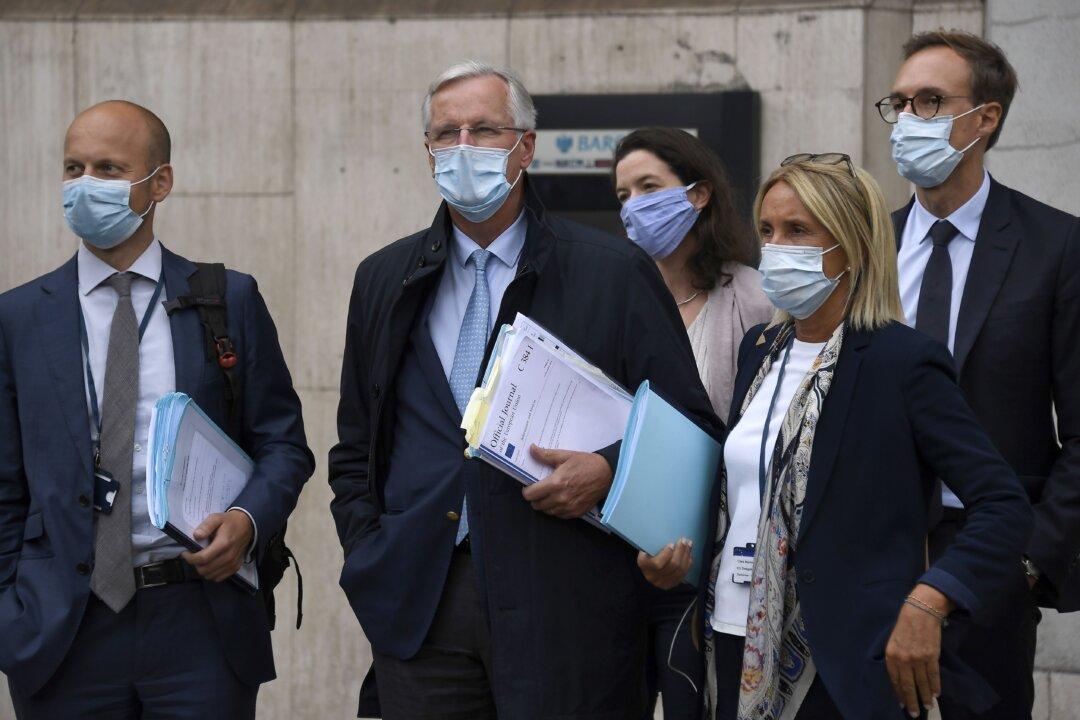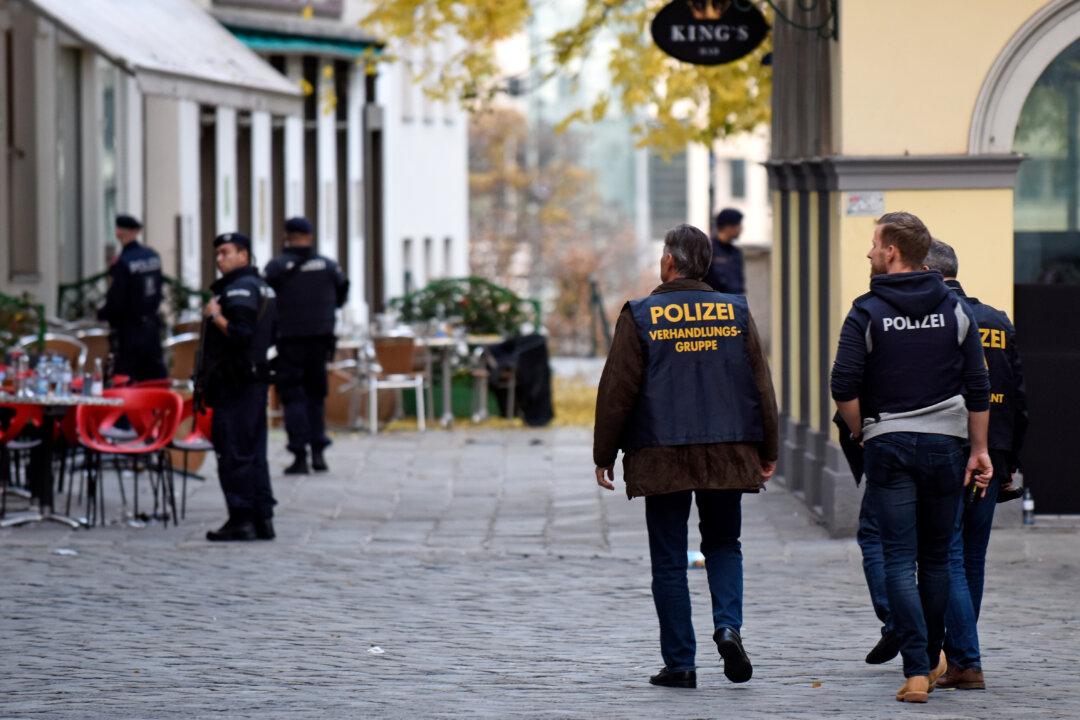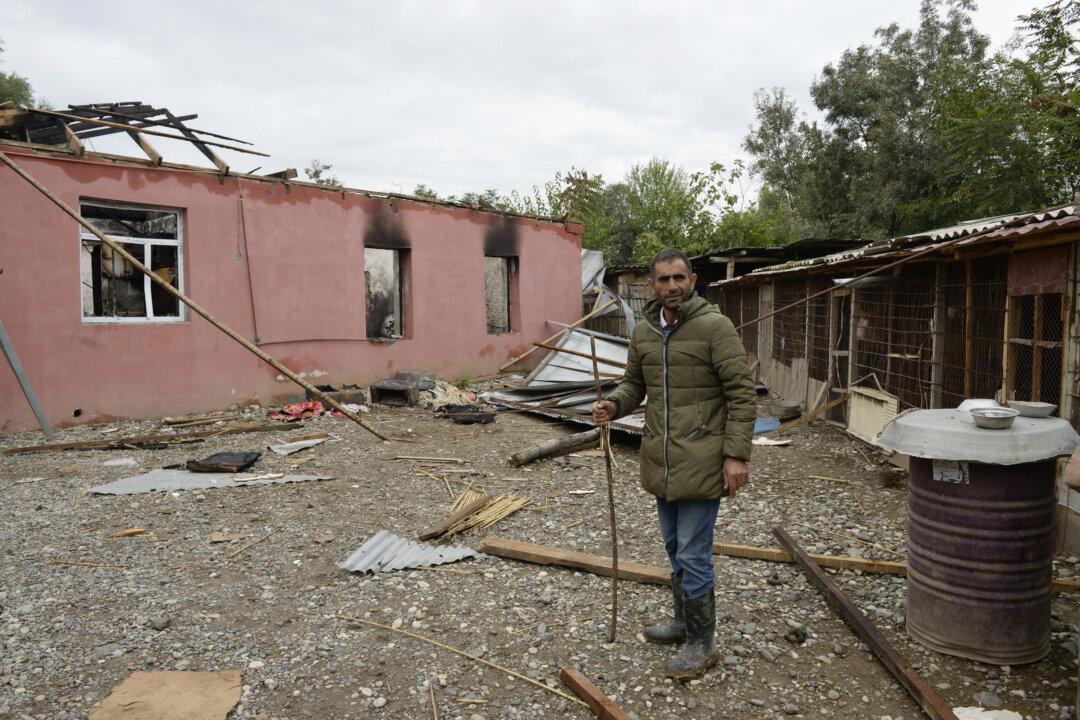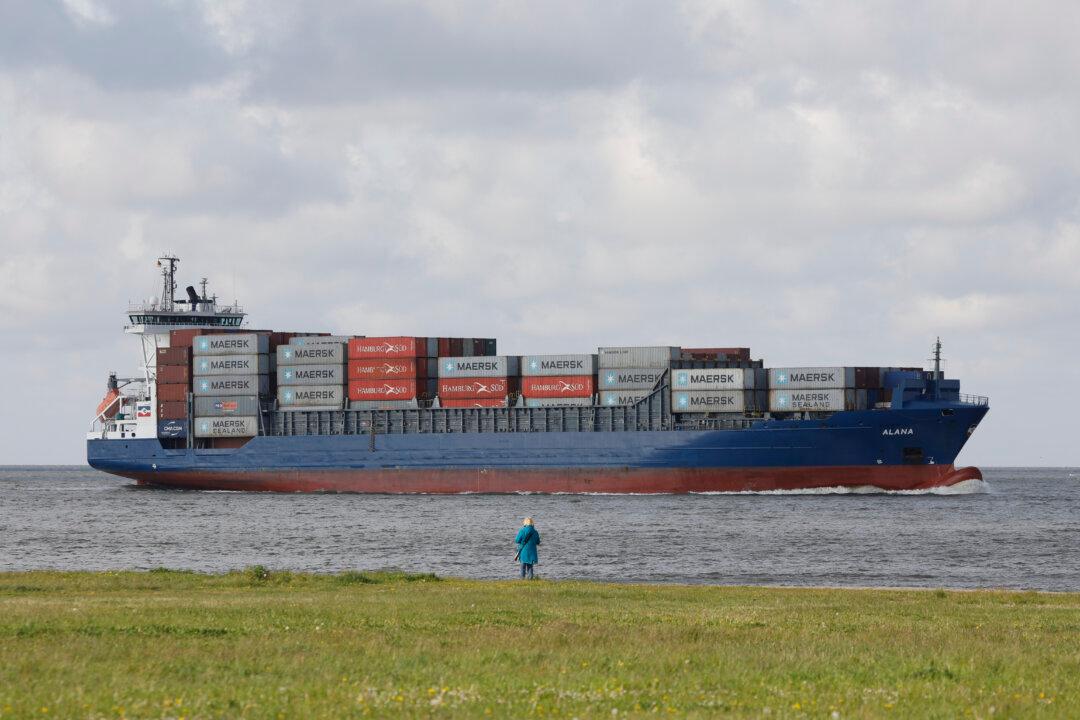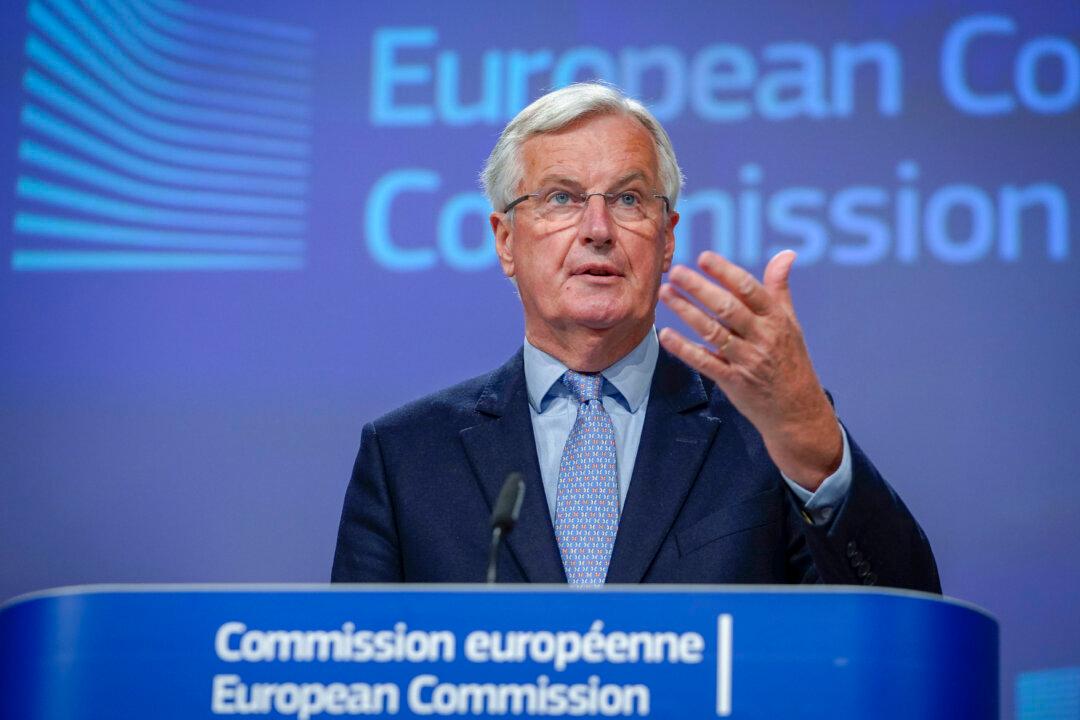BRUSSELS—Trade talks between Britain and the European Union were on the brink of collapse Sept. 9 over Prime Minister Boris Johnson’s bid to backtrack on the promises he made last year to keep the Northern Irish border open.
The EU’s leadership lashed out at the “unacceptable” move by 10 Downing Street, which also threatened to complicate ongoing negotiations the United Kingdom is carrying out with other countries, most notably the United States.
